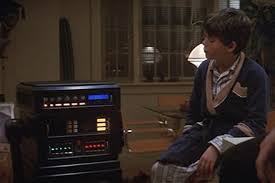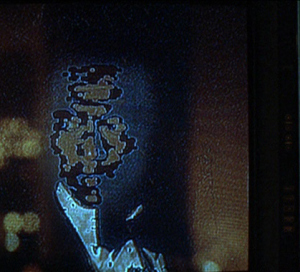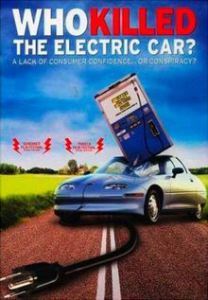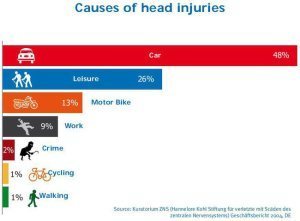Steven Lyle Jordan's Blog, page 34
January 13, 2015
Michael Crichton: More than Jurassic Park
 Michael Crichton (1942-2008) was a prolific author, screenwriter and director for TV and movies, but it sometimes surprises me that he has become remembered almost entirely for a very short list of accomplishments… specifically, Jurassic Park, Westworld, The Andromeda Strain, and sometimes ER (of which he was creator, writer and executive producer).
Michael Crichton (1942-2008) was a prolific author, screenwriter and director for TV and movies, but it sometimes surprises me that he has become remembered almost entirely for a very short list of accomplishments… specifically, Jurassic Park, Westworld, The Andromeda Strain, and sometimes ER (of which he was creator, writer and executive producer).
But this rare creator not only penned many incredible novels besides the few most people think of, but he was the writer/director of some low-budget movies that so beautifully define him to me, including The Terminal Man, Runaway, and Looker.���� His bigger-budget movies, such as Sphere, Rising Sun and Disclosure (also based on books), are also high on my list of movies to watch… when you can catch them.
The Andromeda Strain was the first of his novels that I read, followed by The Terminal Man.�� Both were made into movies, and The Andromeda Strain remains one of the best hard science SF movies ever made, to date.�� (It was Robert Wise’s directing credit on Andromeda that put him on the short list to direct Star Trek: The Motion Picture.)�� It was the influence of these books and movies that made sure I was on the lookout for Crichton material on a constant basis.
It’s true that his modus operandi for storytelling was well-known (and often parodied���in this case the sincerest form of flattery); but fewer people realize that he had a second, slightly less popular but equally effective MO.�� The more popular one was, of course, taking a situation where modern science and technology was used to create something groundbreaking, fascinating, desirable… then to introduce some flaw in the system, either scientific or (most often) human, that rapidly turned everything to Hell.
The Andromeda Strain and Westworld are both good examples of situations where the technology had a (ultimately human-designed) flaw that turned everything sour: In Andromeda, the team investigating a virus from space almost makes a disastrous decision because a teleprinter malfunctioned; and in Westworld, badly-designed security measures locked-out the park’s controllers just as the Delos robots started to malfunction themselves.�� The landmark Jurassic Park is a great example of the human flaw bringing down the great system, but he also made use of it in his movies Runaway and Looker.

Bobby and LOIS: Common household and commercial robots, being reprogrammed by a terrorist to kill, is the plot of Runaway.
Most people have forgotten Runaway and Looker, mainly because of unbalanced acting and unimpressive cinematography, but each story was very Crichton and very ahead of its time.�� In Runaway (1984), the spread of robotics into everyday society, including robotic maids and work bots, self-driving cars and flying drones, eventually required a branch of the police force that dealt with “runaway” robots that had malfunctioned and threatened to endanger the populace (mostly in minor ways).�� But when a terrorist programmer creates and sells ROM chips that can reprogram robots to kill, he must be caught and stopped by the Runaway squad.
Looker (1981) features fashion models that agree to supply their body measurements to a commercial firm pioneering the latest in computer-generated commercials that optimize the ability to sell, including hypno-subliminal messages in the commercial signal… but their doctor (a plastic surgeon) exposes the conspiracy after some of the models turn up dead.
Take another look at those movies’ dates, and consider today’s headlines a moment.�� Crichton was especially good at looking at emerging trends and creating productions based on very believable (and prescient) projections of the future, then exploiting ways in which things could go wrong.�� Debate the quality of the productions all you want, but the concepts were strong and ahead of the curve, and about subjects that are regularly discussed today.

Technology is cleverly used to hide a murderer, and to suss out the real culprits, in Rising Sun.
The other of Crichton’s MOs was to take a fairly pedestrian dramatic event���a murder case, a corporate conspiracy���and place technology in the central role as a story driver.�� Airframe, Rising Sun and Disclosure all feature a heavy use of technology by the heroes to suss out the details of the events in question, usually to discover someone using technology inappropriately or deliberately to conceal facts and hide complicity in crimes.�� (My novel As The Mirror Cracks uses this story method���personal plugging Steve.)
Although the movies simplify the technological detective work and the crime committed to simple and sometimes silly tropes���usually due to a movies’ inherent time constraints and the apparent assumption by studios that moviegoers have the intelligence of laconic ants���the novels of all three of those movies remain powerful examples of the use of modern technology in modern stories.
Throughout, Crichton has demonstrated a better understanding of the interaction between people and technology in today’s society than most SF authors, who prefer to work in timelines a few decades, centuries or millennia in the future.�� Stephen King is quoted to have admired Crichton’s ability to convince his audience that technological ideas of the future weren’t “…just over the horizon but possible tomorrow.�� Maybe today.”

It wasn’t just the special effects, but Michael Crichton’s ability to present science and technology realistically, that made audiences believe a T-Rex could live to terrorize humans today.
This ability to create stories that feel real in today’s world makes Michael Crichton one of my favorite authors, whose work I wish I could emulate, and whose talent I will dearly miss.
“There is no one in the wings that will ever take his place.”
���Steven Spielberg on Michael Crichton’s death

January 6, 2015
Mercedes is making Sarcology come true
 German automaker Daimler on Monday showed its vision of the driverless car at the International CES on January 5, 2015 in Las Vegas. The F015 prototype vehicle is designed to do all the driving, while four passengers can face in any direction, including towards each other, and do whatever they’d like with their time.
German automaker Daimler on Monday showed its vision of the driverless car at the International CES on January 5, 2015 in Las Vegas. The F015 prototype vehicle is designed to do all the driving, while four passengers can face in any direction, including towards each other, and do whatever they’d like with their time.
This concept is pretty much spot-on to the vision of the self-driving cars I described in my novel Sarcology. So, if you’ve read the book (snort), and are curious about the kind of driving experience I envisioned, just use your mind to insert this very car into the passages, and you have it.
One crucial difference: In Sarcology, the back seat was a sumptuous sofa, allowing for more comfortable and… energetic… activities. (Cue Ruby Rhod clip)
You’re welcome.

January 3, 2015
Ebooks vs paper… still?
 A statement from Steve Davidson, owner/publisher at Amazing Stories, recently posted to Facebook:
A statement from Steve Davidson, owner/publisher at Amazing Stories, recently posted to Facebook:
“I wish to go on record to state that my recent physical encounter with physical books has absolutely in NO way diminished my love of physical books, nor has it diminished my loathing for so-called e-books in the least!
“We’re taught that the things you work hardest for are the things that you cherish the most, are the things that have the most import and meaning. This is true…and no less true for REAL books. When you’ve carried and sorted and lifted and twisted while holding what amounts to tons of paper in the aggregate, you may ask yourself – “why am I doing this?” After all, there is an easier way – just ditch the whole thing and buy the electronic version, store em in the cloud and get some space back in your hallway.
“But then you look at the titles…the author names…the artwork…and you remember where you where (sic), who you were with and what you were doing when you first started carrying it around and you realize how full of life, how full of stories beyond the story, each and every volume is, and you realize how soulless and meaningless a bunch of ones and zeroes stored on some server farm in Outer Outer Mongolia is and, suddenly, those books just don’t seem that heavy or awkward anymore.”
I don’t know if this post was written in response to an event, such as an avalanche of books falling upon Davidson while he was running an inventory, and a subsequent hospital stay… or possibly the act of moving, said process significantly complicated and made more expensive by the inclusion of an additional few truck-fulls of books and magazines. And I’ll try to ignore the clear slight to those of us who not only appreciate, but prefer reading and writing in ebook formats. No matter—my rebuttal, also posted to Facebook:
“It’s funny: I can look at those old books, and see rotting paper with dried and fading marks left by energy-wasting, environmentally-damaging printing presses and even less identifiable stains, beat up by smoke-belching trucks and rat-infested warehouses before ever reaching me, encouraging the build-up of paper-eating insects and mildew, breaking my back, breaking my shelves, taking up space my wife would just as soon see filled with colorful pictures, knick-knacks and sculptures from our travels…
“against a miracle of electronic storage and display, carrying the equivalent of a few-score boxes of books within it, in malleable formats easy to adjust to the eye, easy to search, easy to buy from wherever I am (if there’s a WiFi connection, anyway), easy to take my entire library to Outer Mongolia if I wish…
“and suddenly the point of all those paper books is completely lost to me. In fact, the only reason I keep them around is in the hope that I find an easy way to convert them to ebooks sometime in the near future.”
It’s always interesting amazing to me that people who espouse science fiction—which means by definition that they have an appreciation for science and the things it has wrought over the ages—seem to have an outright disdain, bordering on manic hatred, of books in digital formats. (It’s also interesting amazing to me that SF fans, many of whom by extension do not ascribe to any religious views, nonetheless like to imbue books with souls. Well, I suppose they could have souls—most likely the souls of the healthy living trees that were cut down to make them…) But to condemn an entire format of books, and by extension, the novels that are available in that format, seems beyond the extreme to me.
 I can certainly understand an attachment to the trappings of personal pasts and traditions, which often include those tired old paperbacks that, at one time, may have seemed to be your only entertainment… maybe even your only true friends. I have memories like that, too, and they include other geeky items, like models, toys, comic books and movie posters galore.
I can certainly understand an attachment to the trappings of personal pasts and traditions, which often include those tired old paperbacks that, at one time, may have seemed to be your only entertainment… maybe even your only true friends. I have memories like that, too, and they include other geeky items, like models, toys, comic books and movie posters galore.
But my memories also include a constant and unwavering interest in science and technology, and the many ways in which they would enrich my life as they developed. And in the same way I view the transition from black-and-white TV to color… the development of computers from room-sized goliaths to devices that fits into my pocket… and the creation of a communications network that allows me to share documents with friends on the opposite side of the planet… in the same way that I view all those things as a clear enrichment of life; so I see the creation of ebooks, and the ability to carry a flexible, searchable and ever-expandable library with me at all times, without having to do the damage to the environment that printing, hauling and storing physical books requires, as an enrichment of all of our lives, an undeniably good thing.
 Now, if Davidson and others like him prefer printed books, value the memories made when hauling them around, and prefer potentially risking his health dealing with heavy, moldy fire-hazards, that’s clearly their prerogative, and I don’t begrudge them that. (Mild shake of the head, a little eye-rolling, okay, but that’s it, I swear.)
Now, if Davidson and others like him prefer printed books, value the memories made when hauling them around, and prefer potentially risking his health dealing with heavy, moldy fire-hazards, that’s clearly their prerogative, and I don’t begrudge them that. (Mild shake of the head, a little eye-rolling, okay, but that’s it, I swear.)
But considering all the wonderful new fiction that is available to them, from sources they’d never have had access to before electronic media and internet communications became a thing—including, potentially, my own stories—and considering how most of them, especially Davidson, are taking advantage of that selfsame technology to gain themselves exposure and further their own ends—I’d certainly hate to think that they are purposely shunning all that technology-provided entertainment from their lives, and new potential memories to be made, based on a luddite attachment to an ancient and wasteful production and dissemination system that has been quite thoroughly surpassed by the wonders of the modern century in which they stand.
Because, when it comes down to it, it’s not the format; it’s the story that has value, however it’s packaged.

January 1, 2015
What killed prognostication?
 The beginning of the new year is always the time when people will either traditionally ask, “What do you predict will happen in the future years?” or they’ll traditionally tell you. I’ve been avoiding making outright predictions of what will happen in the future… and the reasons go back to 1980, and a slam-dunk future that turned out not to be.
The beginning of the new year is always the time when people will either traditionally ask, “What do you predict will happen in the future years?” or they’ll traditionally tell you. I’ve been avoiding making outright predictions of what will happen in the future… and the reasons go back to 1980, and a slam-dunk future that turned out not to be.
Back in 1980 (or thereabouts), Washington, DC had a celebration on the Mall for Earth Day. This was a time when Carter was still President, he’d installed solar panels on the roof of the White House, the EPA had recently made sweeping decisions that improved the air quality in many parts of the country (including Washington, whose dirty air in the 1970s could give me a migrane within 60 seconds of walking out my door), Popular Science magazine ran monthly features about new homes that featured energy-conscious designs, and the environment was trés chic at the time.
In this pro-environment-pro-alt-energy environment, one of the things I remember in all the sales booths and promotional sites were no less that four fully electric vehicles on display. One of them was from GM—the prototype of the EV-1, which actually ran on American roads until GM recalled and scrapped every one that could get their hands on. At least one car was from a major manufacturer, though I don’t recall which. Both of those had strong endorsements from the newly-established US Department of Energy. And there were at least two more, made by unknown garages hoping to get in on the ground floor of American electric vehicle production.
And I remember thinking at the time: “This is great! If there are four prototypes here now, and two of them from major manufacturers… imagine what America will be like in the year 2000! (Back then, you could say “in the year 2000″ and sound really futuristic doing so.) Why, there’ll be dozens of electric vehicles out there to choose from… maybe all of them! When I’m ready to buy a car in 2000, it’ll be electric!”

The epitome of car technology in the year 2000.
Cut to the futuristic-sounding year 2000, in an America when Reagan took over the White House, disconnected the solar panels and turned the Dept of Energy from an agency actively researching and supporting alternative energies to an agency tasked primarily with monitoring spent nuclear waste from the military. Popular Science had abandoned its energy-efficient home showcases, and had become another venue for showy cars and trucks and other outrageous toys. The SUV was still the ruler of the roadways, and Americans were in a constant battle to self-hypnotize themselves into forgetting how much they spent on energy costs.
In this landscape, I went looking for a new car. And instead of having “dozens of fully-electric cars” to choose from, I was aware only of the EV-1 being out there somewhere (because who ever actually saw one?), and Honda has just introduced the hybrid Insight to Americans. The Toyota hybrid Prius had been manufactured, but was not available in the US yet. And the Insight seemed like an insult, with its tiny size, anemic performance and $19,000 price tag.
So after 20 years of car development squandered, I found myself buying another gas-fed car. And adding insult to injury, the car I bought was rated at some of the highest mileage of any car sold in America… and it was no higher than the original mileage rating of the 1985 Datsun 200SX that I was trading for it!
Clearly a lot of elements conspired to change what originally looked like a slam-dunk future: An American culture that decided to embrace credit and conspicuous consumption over savings and frugality; an auto industry that conspired to avoid development of more expensive electric vehicles, over the re-branding of low-mileage trucks as SUVs; an oil industry that wanted to continue making high profits, and so supported the auto industry in dialing back technology 20 years and locking it there; and politicians who were more than happy to accept the bribes of industry leaders to de-fang environmental regulations and pollution controls. All of these things put together spelled the death of the Electric Car, and made sure that in 2000, I’d be buying a Hyundai instead of an electric.
And it serves as an effective reminder of why prognostication isn’t the easy thing it sometimes seems to be. Though a technological breakthrough may seem like a shoe-in to be part of our lives in the future—no matter how easy, no matter how promising, no matter how sexy—so many factors, some from way out in left field, can influence it (ebooks), alter it in ways no one would be able to predict (social media), or kill it altogether (the Apollo Moon program… and the electric car).
 Fortunately, some of these technologies have a chance to come back, and sometimes stronger than ever, giving our hopes for a brighter future back to us. We may yet see a future with dozens of electric cars available to the public… just as we might someday see highways of self-driving cars, permanent manned bases in orbit, on the Moon and Mars, a 100+ year lifespan, a brain-computer interface, and any number of other things.
Fortunately, some of these technologies have a chance to come back, and sometimes stronger than ever, giving our hopes for a brighter future back to us. We may yet see a future with dozens of electric cars available to the public… just as we might someday see highways of self-driving cars, permanent manned bases in orbit, on the Moon and Mars, a 100+ year lifespan, a brain-computer interface, and any number of other things.
But when it comes to exactly what we’re gonna get… or when we’re gonna get it… your guess is as good as mine.

December 31, 2014
How do we protect our heads?
A recent article in Treehugger takes an interesting path in explaining that there’s little point to arguing whether cyclists should wear bike helmets (for their own protection, they should—argument over); the real issue is whether we should all be wearing helmets, cycling or not.
 In case you hadn’t heard, the human body gained a lot by going vertical: Longer distance vision has been a godsend for the survival of our species. But in the process, it lost something significant: The human skull and the brain within are not strong enough to withstand a fall from the height of a standing human; if a human body falls over, the impact of that fall to the skull can kill you. Did you catch that? You can get a concussion or crack your skull open falling from your standing height to the ground. And people die or become permanently and seriously injured to the head by slipping, tripping, getting knocked down or otherwise losing consciousness and falling over. Every day. Eesh.
In case you hadn’t heard, the human body gained a lot by going vertical: Longer distance vision has been a godsend for the survival of our species. But in the process, it lost something significant: The human skull and the brain within are not strong enough to withstand a fall from the height of a standing human; if a human body falls over, the impact of that fall to the skull can kill you. Did you catch that? You can get a concussion or crack your skull open falling from your standing height to the ground. And people die or become permanently and seriously injured to the head by slipping, tripping, getting knocked down or otherwise losing consciousness and falling over. Every day. Eesh.
In fact, the number of people who suffer head injuries on bicycles are laughingly small compared to those who suffer head injuries by other means… cars (of course) being the most common of all. (One more reason to support the development of self-driving cars, I think.) So maybe this concern about bike helmets really is looking at the issue the wrong way.
 Shouldn’t we all be looking for ways to protect our heads all the time? Sure, people aren’t going to start wearing helmets everywhere they go—let’s face it, a fashion accessory like that is a ready-made “retarded” gag. But there are alternatives to helmets… for instance, something like the Hövding, the airbag-in-a-collar. The Hövding was originally designed for bicyclists, to protect the head and neck if the rider was struck or knocked to the ground… but maybe, just maybe, something like this is what everyone should wear, all the time.
Shouldn’t we all be looking for ways to protect our heads all the time? Sure, people aren’t going to start wearing helmets everywhere they go—let’s face it, a fashion accessory like that is a ready-made “retarded” gag. But there are alternatives to helmets… for instance, something like the Hövding, the airbag-in-a-collar. The Hövding was originally designed for bicyclists, to protect the head and neck if the rider was struck or knocked to the ground… but maybe, just maybe, something like this is what everyone should wear, all the time.
Okay, yes, a Hövding looks stranger than a helmet when deployed… what safety device doesn’t? But before deployment, it just looks like a thick (and slightly kludgy) collar. But I can imagine developing various more stylish versions of Hövding, built into jacket collars, incorporated into wraps and scarves, and eventually becoming as ubiquitous as hats for many people.
 It probably seems a bit strange; but if you think about it (and most people don’t), you risk so much of your life and health from a simple standing fall that it’s almost amazing that there aren’t some health and safety organizations screaming for protection like this on every American neck, right now, to save us all. (On the other hand, I guess the lawyers don’t mind all those falls at all…)
It probably seems a bit strange; but if you think about it (and most people don’t), you risk so much of your life and health from a simple standing fall that it’s almost amazing that there aren’t some health and safety organizations screaming for protection like this on every American neck, right now, to save us all. (On the other hand, I guess the lawyers don’t mind all those falls at all…)
But until Mankind develops thicker skulls and stronger necks, perhaps a technological method to protect ourselves from such potentially grievous injury wouldn’t be such a bad idea.

December 30, 2014
2014 was pretty damned pathetic.
 You know how WordPress likes to show you how your year went? I’ll save you the trouble:
You know how WordPress likes to show you how your year went? I’ll save you the trouble:
Although a lot of people read my article on the Orion program, there are still way too many people obsessing about that damned Wrath of Khan article, and my April Fools posts about the Sci-Fi Airshow and the creepy nebula, to read much of anything else.
The Novels page has been viewed 49 times this year. Book sales this year (out of a total of 11 available books) are less than half that number.
Thanks for the memories.

December 29, 2014
Plans for 2015: ???
 As a new year approaches, I find myself in a familiar position: Reflecting on the past year, I have to ask myself, “Am I gonna continue this insanity for another year? Or am I gonna find some new insanity to commit myself to?”
As a new year approaches, I find myself in a familiar position: Reflecting on the past year, I have to ask myself, “Am I gonna continue this insanity for another year? Or am I gonna find some new insanity to commit myself to?”
As I reflect, though, I must look back further than just the past year. I have to consider the first year I tried to sell my novels, which did very well as ebooks during my first year thanks to the support of the enthusiastic members of the MobileRead forum. I have to consider the support of people like David Rothman and Paul Biba, formerly of TeleRead, who arranged for me to attend the Tools for Change conference in New York City. I have to consider the support of my wife, who went to the trouble of framing an article in the New York Times that mentioned me—that opened with me, in point of fact—in discussing ebook formats, a subject I was helping to guide in the industry. And I have to consider the fact that my work caught the attention of Rob Robertson of Arupt Entertainment, who has asked me to collaborate on numerous projects for television.
There have been any number of fellow authors, most of whom have stridently urged me to continue with my writing and sales efforts. There have been readers of my novels who have similarly encouraged me to continue writing and entertaining them and others.
And there is the existence of movies like Interstellar, and television shows like Orphan Black and Person of Interest, that demonstrate that interest in serious science fiction hasn’t been completely lost.
On the flip side—I have to consider a publishing industry that still has a tight rein on book promotion, controlling the major outlets, using their influence to guide bestseller lists, generate glowing reviews, place books on award lists and, in so doing, shutting out independent authors from widespread notice. I have to consider public forums that have rebelled against public or targeted promotion (unless it directly pays them a dividend), and that shun artists who make even the smallest attempt to promote their own works. I have to consider how few venues will allow me to promote myself, or that demand more money than I’d ever hope to make for a tiny ad space no one would ever see.
I have to consider promises not kept: Paid promotional materials that somehow never made it into the hands of customers; stories sent to be included in anthologies that were subsequently not published; venues that promised sales through exposure, which never materialized; customers that, while saying they enjoyed my work, nonetheless didn’t share that enjoyment with others (or perhaps they gave their friends free copies of my books, which, for me, amounts to the same thing).
I have to consider a much stronger market for flashy fantasy franchises like Game of Thrones and Star Wars, or dystopia fiction like The Hunger Games. I have to consider a majority of the public that seems to have similarly lost interest in scientific development, either treating all science as akin to magic, or identifying it as the ultimate destroyer of the world.
And I have to consider a public that believes that anything that can be handled on the internet should by definition be free; that those who create things that can be handled on the internet should have no presumption of deserving pay for their products, least of all from those who peruse their content.
All of these things weigh heavily on my mind; in fact, they are usually there for most of the year, not just a few days before January first. These thoughts have essentially kept me from writing a new novel in the last two years, or planning my next one. They have left me pondering better uses of my time and different outlets for my energies. They have left me second-, third- and fourth-guessing myself, my work, my dedication and desire, my worthiness and my self-value, on a daily basis.
They have left me wondering why I put myself through this, year after year, and whether it will ever pay off and earn me a chance of making an income in my later years… or just leave me a bitter old man with a wasted past and an empty future.
 As it so happens, I’ve already committed myself to a few promotional efforts for 2015; I won’t just automatically switch off all the lights on December 31st and go home. But the success of those efforts may dictate how many of those lights I leave on in 2015… if I will redouble my efforts afterward… or if the lights will all be off by summer.
As it so happens, I’ve already committed myself to a few promotional efforts for 2015; I won’t just automatically switch off all the lights on December 31st and go home. But the success of those efforts may dictate how many of those lights I leave on in 2015… if I will redouble my efforts afterward… or if the lights will all be off by summer.
Can’t wait for the 31st… I will be so ready for a drink. Or four.

December 26, 2014
The future of television
 American television has been undergoing a massive shakeup of late…
American television has been undergoing a massive shakeup of late…
Okay, what I should be saying is that American television is undergoing another massive shakeup of late. Because American television has actually been under attack since the day it was created. Movies and theater have always been at odds with television, showing it up for being less intellectual, less relevant, less powerful, less colorful, less large, etc, etc.
Over the years, television has taken on these challenges, largely, by evolving the very characteristics that made movies and theater so powerful. TV has hired writers and actors from the movie studios, improved productions, taken on more relevant storylines, and adopted more street-wise language, sex and nudity. They’ve even shown movies—the competition, essentially—on TV. They’ve developed award systems that mirror the Oscars, and have brought the pomp and circumstance of movies to TV. And TVs have gotten bigger and better, taking up entire walls now, going further to mimic the theater experience. Now TV strives to utilize the features that make the internet so powerful, and it will continue to evolve to better itself and keep itself relevant.
All of these things have allowed TV to maintain its position and profitability in American entertainment. But now, it faces what might be its biggest threat: The erosion of advertiser-supported programs.
From the beginning, American television shows have been paid for by sponsors, those who helped foot the bill for TV production in exchange for being mentioned in prominent commercials or promos. Audiences mostly sat through commercials, thereby seeing the product, and hopefully going out and buying it. It was actually a tenuous arrangement, based on correlations as opposed to hard data, and it was nigh-impossible to know for sure that a surge in product buying corresponded directly to the running of TV commercials; but that supposition was good enough for sponsors. And so popular TV has continued on like this for over fifty years.
But in the past two decades, the equation has been changing. Recording devices like DVRs, and their predecessors, the VCRs, allowed people to record shows and fast-forward past the commercials the sponsors wanted viewers to see. This is why TV has been experimenting with new ways of showing the commercials, such as overlaying messages on the bottom of the screen during the actual programs. But these promos are to full commercials what silent films are to My Fair Lady: Pale comparisons at best, providing none of the nuance and cleverness that full commercials can bring, and therefore not having the power to convert viewers to customers.
And in recent years, the growth of the Internet and various online entertainment venues have caused many viewers to give up on TV altogether, electing to get all of their video entertainment from online services… some of which are subscription-based and commercial free. For perhaps the first time ever, American TV audiences are shrinking, and sponsors are wondering what to do now. Many of them are trying to switch to Internet-based advertising systems such as banner ads and embedded commercials in videos. But as the sponsors head for the web, fewer of them are willing to work with television.
And American television has no other revenue stream in place to replace sponsors. Without sponsors, no shows will be made for television. Could this, finally, be the death-knell for American TV?
 Not necessarily. For one thing, television has moved to the Internet as well, and as I said, it has figured out how to embed commercials so the videos cannot be watched without the commercials. And thanks to that miracle device of web-based promotion, the cookie, online services can better target promos to the web viewer. They could even potentially keep track of the TV shows you watch (gathering intel from cable boxes or related social media, for instance), then serve up web-based commercials to members of that household when they go online. Wherever they are. So ad-revenue can still be applied to TV shows.
Not necessarily. For one thing, television has moved to the Internet as well, and as I said, it has figured out how to embed commercials so the videos cannot be watched without the commercials. And thanks to that miracle device of web-based promotion, the cookie, online services can better target promos to the web viewer. They could even potentially keep track of the TV shows you watch (gathering intel from cable boxes or related social media, for instance), then serve up web-based commercials to members of that household when they go online. Wherever they are. So ad-revenue can still be applied to TV shows.
But will that be enough? TV programs, thanks to improved production and better talent, are becoming increasingly expensive; and there are an awful lot of them. Television really needs new revenue streams to bolster its product. But where can they come from?
Some of the revenue can come from the government, through taxes… presumably, directed towards television shows that the government decides Americans should see. (Don’t ask me what those are likely to be… I’m not sure I want to know.) Another possibility is the public itself: Just as public television networks are supported by tax-deductible donations, so can other networks, or individual programs, once a suitable donation system is put in place.
Similarly, organizations and corporations can always donate to shows that support their views or further their business plans. We know commercials may not be viable much longer, but product placement is always a viable alternative, and has been used in movies and television for years (though often clumsily mis-handled, hopefully writers and producers would find better ways of using product placement in programs).
It’s possible that some shows could be financed through kickstarter campaigns, especially if they can somehow evolve into tax-deductible sources of donations (since the money is going into public entertainment, there is merit to the concept), or if other organizations (or governments) will agree to put up matching funds or promise support under certain milestones.
 And television stations can become increasingly subscriber-funded, if they can convince viewers that they deserve viewer support. Finding new ways to monetize their shows in small and painless increments—like paying a few pennies in real-time to bypass commercials, to get a better signal or to get other premium content, for example—might prove acceptable to audiences.
And television stations can become increasingly subscriber-funded, if they can convince viewers that they deserve viewer support. Finding new ways to monetize their shows in small and painless increments—like paying a few pennies in real-time to bypass commercials, to get a better signal or to get other premium content, for example—might prove acceptable to audiences.
American television has some choices when it comes to supporting itself, some in-place, some potentially under development. And as ad-supported revenue shrinks, the industry needs to get those other revenue streams in place… before it discovers that it no longer has the money to produce its own products, and it truly and finally loses to the competition.

December 25, 2014
Celebrate the old; Anticipate the new
 Y’know, there’s a reason so many holidays from so many faiths fall at this time of year, the time of the Solstice: This is the end of the traditional growing season and the beginning of the next one. A time to celebrate the bounties we brought forth over the previous year—and to prepare ourselves for the bounties to come.
Y’know, there’s a reason so many holidays from so many faiths fall at this time of year, the time of the Solstice: This is the end of the traditional growing season and the beginning of the next one. A time to celebrate the bounties we brought forth over the previous year—and to prepare ourselves for the bounties to come.
The time to affirm our relationships with friends, family and loved ones, and to gift them from our bounties to show how much we love that they are in our lives, and hope they will stay in our lives through the next season… and the next, and the next.
The time to affirm our lives, faiths and traditions, to reflect on them, to forgive any part of them that did not serve, and if necessary, to consider changes to them.
The decorated tree is symbolic of our connection to nature and the growing seasons, and the place where we display our gifts for all to see.
Here’s hoping everyone is able to affirm their loves and their relationships, have something to celebrate from the past year, and can hope for more wonderful years to come.

December 21, 2014
We’re in the crappy reality
Many of us like to imagine that there’s another world, a parallel reality, where all adventures happen, where we do great things as a people, where the universe is an exciting place to live, and the human race is full of awesome possibility. My own publishing arm, Right Brane, embraces that concept.
And maybe there is such a place. But it’s abundantly clear that we’re not in it.
We’re in the crappy reality. The reality where we race to the Moon in order to stick our tongues out at another tribe; then walk away as if nothing happened. Where terrorists think the best way to make their point is to kill thousands of innocent people. Where policemen think they have a carte blanche to be racist assholes. Where people fear things like A.I., while ignoring the incredibly heinous deeds being committed every day by natural intelligence. Where people think the only value of a tree is giving you someplace to hang your swing. Where we drive cars that have not changed in basic technologies in 50 years, and we still burn dirty oils to move them about, because of greed. Where it’s okay to disparage your neighbor, as long as you have enough people behind you to back you up. Where people defend their right to be clueless, ignorant, stubborn and violent. Where people invent meaningless differences between each other, in order to create cliques and segregate others. Where people ignore the things that need to be fixed in this world, because they think there’s a perfect world waiting for them with open arms and a short memory for all of their failings.
Where I dutifully put up posts about cool technologies and societal changes that I, quite honestly, never expect to see or benefit from in my lifetime.
That’s the crappy reality. The reality that we willingly, eagerly, moronically put ourselves in.
Listen to me very carefully:
We could be that other reality.





